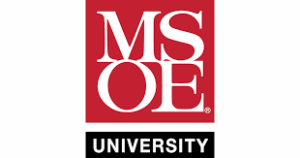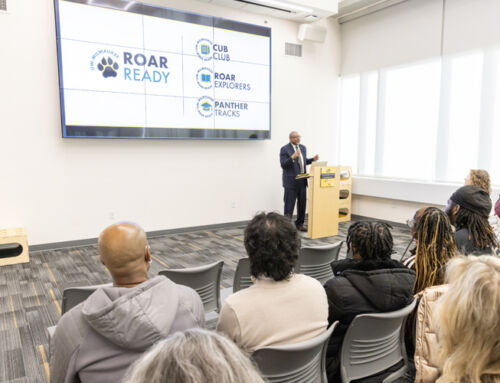It is safe to say that conversations surrounding artificial intelligence (AI) are far from over.
According to a recent report published by The Brookings Institution, the U.S. is in the midst of an “AI revolution.” Regions across the nation are utilizing AI to drive innovation, create efficiency and fuel economic growth. Yet for many areas, including Milwaukee, work must be done to fully harness this transformative technology.
Brookings tracked the AI capacity of 387 metro areas across three dimensions of readiness: talent, innovation and adoption. In each dimension, the area was given a performance score of T, M or B (top 25%, middle 50% or bottom 25%).
Milwaukee was clustered with 78 other “Nascent Adopters;” metros that scored at least two Ms and no Ts. Brookings provided middle-tier performers like Milwaukee with three recommendations on how to take their AI presence to the next level:
- Build broad AI literacy
- Promote research at higher education institutions

- Align AI development efforts around the demand “pull” of the region’s larger employers
In Milwaukee, institutions like the Milwaukee School of Engineering (MSOE) are paving the way for long-term AI success.
Dr. Jeremy Kedziora, MSOE’s PieperPower Endowed Chair in Artificial Intelligence and associate professor in the Dierks School of Advanced Computing, shared that a higher education institution’s ability to research, implement and ultimately become a leader in AI, relies heavily on the institution’s ability to secure the necessary resources.
MSOE is raising money for its Next Bold Step Campaign, a $125 million initiative that supports the school’s goal of becoming a leader in applied AI education. A portion of the campaign funds are going toward the construction of the new Robert D. Kern Engineering Innovation Center, a 97,000-square-foot facility that will house labs, classrooms and workshops. This infrastructure will also be home to the new Center for Applied Artificial Intelligence Education, integrating AI and machine learning across programs and projects.
Because the world of AI is ever-changing, Dr. Kedziora also pointed to research as a necessary element for continued innovation and growth. Algorithmic innovation, applications, genomics, natural language processing and deep learning only scratch the surface of MSOE’s ongoing studies.
“[Research] forces you to stay engaged and stay aware,” he said.
Students are encouraged to take skills learned through the school’s AI-centric curriculum and apply them outside of the classroom.
Each year, the university hosts The Rosie Supercomputer Super Challenge. Students use Rosie, an NVIDIA GPU-powered supercomputer to solve a problem. Dr. Kedziora highlighted several impressive projects from previous years, including the use of AI to write music and as a diagnostic tool. Last year’s first-place award went to a group of students whose project was “Adapting Large Language Models (LLM) to Domains Using Retrieval Augmented Generation (RAG).”
Students also participate in the Hacksgiving Hackathon, an annual competition that tasks students with a problem that they must solve for a nonprofit organization. Last year’s nonprofit was Discovery World.
On the business side, MSOE has a strong relationship with Direct Supply, a senior living and health care solutions company. The partnership emerged from the organizations’ shared interest in developing AI talent.
Dr. Josiah Yoder, an adjunct associate professor in the Dierks School of Advanced Computing, serves as the liaison between MSOE and Direct Supply. Dr. Yoder works one-on-one with MSOE students to develop AI-based project ideas that assist Direct Supply in the data science space.
Dr. Yoder hopes that MSOE’s partnership with Direct Supply will steadily expand in the coming years, giving more students real-world application experience, while also receiving the necessary one-on-one support and mentorship.
AI talent is not only developed through business partnerships. MSOE’s AI programming and outreach with local K-12 institutions dates back to 2018. According to Elizabeth Taylor, director of the We Energies STEM Center at MSOE, 2019 was the year that the university partnered with Northwestern Mutual to launch Girls+AI. This full-day event provides female students with a chance to learn more about the innovative technology.
MSOE also hosts STEM on Site, a program for second to 12th-grade students to visit MSOE and receive a 90-minute lesson on AI or other STEM-related topics. Each AI lesson is based on the Five Big Ideas framework, which highlights AI’s relationship with perception, representation and reasoning, learning, natural interaction and societal impact.
This summer, MSOE launched Artificial Intelligence Literacy, a pilot workshop for high school students with experience using the coding platform Python. In one day, students gained a deeper understanding of AI and built their own AI models. Taylor hopes to replicate a similar workshop during the school year.
To learn more about what MSOE is doing in the AI space, visit the school’s related webpage.




